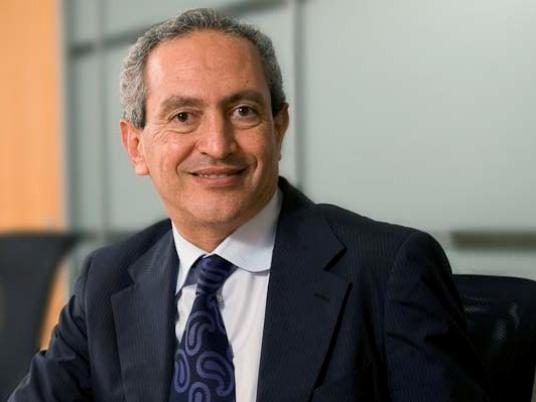Ajdabiyah — Ajdabiyah is a ghost town. Shattered windows mark the facades of vacant houses and burned out tanks line the city’s streets. Evidence of heavy gunfire exchange is everywhere. On the way to the western gate, a white flag peppered with red dots stands in the middle of the street, identifying the rebel regrouping point. Should Qadhafi loyalists launch an offensive on Ajdabiyah, this is where the rebels intend to make their stand.
As a focal point of the Libyan frontline, former residents deserted the city nearly a month ago. They fled to the de facto rebel capital Benghazi, or further east through Salloum to Egypt, to escape the violence.
Since the late February beginning of the civil war in Libya, Ajdabiyah has changed hands several times. In March, Qadhafi forces seized the city while en route to Benghazi, seeking to quell the weakened unrest. Following a bombing campaign led by European powers and NATO, Libyan rebels “liberated” the city shortly thereafter.
But after resilient Qadhafi loyalists stopped their advance at Ras Lanuf, the rag-tag rebels relinquished control. Due to continued airstrikes, Qadhafi troops have recently retreated to Brega, a city located further west along the Libyan coast. The murky frontline currently lies somewhere between the two cities, roughly 40km from both Ras Lanuf and Brega.
A green metal gate marks Ajdabiyah’s western exit. A small booth rests to the right, badly damaged by 50-caliber bullets. Two mujahedeen repaint the white walls to erase pro-Qadhafi graffiti. They then light a fire inside the building to make the paint dry faster. Some of the bullets left in the building go off. No one cares. Ammunition lies all around the vicinity and the sounds of gunshots are familiar to these people. Some rebels stuff paper in their ears to muffle the sound of the anti-artillery guns, fixed on pickup trucks and fired regularly.
"Please don't take my picture,” requests one of the combatants armed with an FN-FAL rifle. “I don't want your people to think that I'm a member of Al-Qaeda because of my long beard.”
The international media in recent days has suggested Islamist radicals are contributing personnel to the Libyan rebel force.
Others fighters are concerned publishing their pictures will tip the enemy off to their position. The mujahedeen of Ajdabiyah, however, are generally very welcoming. But they require reporters to withhold their full names for fear of repercussions.
The western gate is the last checkpoint to the frontline and traffic is significant. Pickup trucks loaded with combatants incessantly exit the city limits. And a steady stream of ambulances usher the wounded and dead back to Ajdabiyah.
Vice-chairman and spokesperson of the Revolutionary Transitional Council, Abdul Hafiz Ghouga, recently estimated rebel casualties at 20 to 25 daily in the area. Pro-Qadhafi losses are unknown.
“We have strict orders to bring back the weapons of our fallen brothers,” says Mohamed, a young combatant just returned from the frontline. “There are a lot of volunteers who want to fight the dictator, but simply we don't have enough guns to arm them.”
Fifteen hundred volunteers turn out at Benghazi’s military base daily, looking to fight Qadhafi forces. They receive a seven-day basic training session before being sent to war. The training may be extended up to a month, if the volunteer is willing to learn how to operate heavy military equipment. The army sets one condition: the volunteers must be over the age of eighteen.
Men exceeding 60 years of age also fill the ranks of the mujahedeen. The image of the old warrior, Omar Mukhtar, credited with liberating the country from Italian oppression, still resonates in the minds of Libyans. Because of this, elderly combatants are readily welcomed. Recruitment leaders assume they at least know how to shoot a rifle.
“I joined them, because we must fight if we want to live free,” says 57-year-old Ahmed Bakush. “However getting a weapon is really hard nowadays in Libya. If the army can't provide one, the people try to buy it on the black market. I bought a Kalashnikov for 3500 dinars. Ammunition is one and a half dinar per piece.”
Bakush says his sons are also forming the ranks of those flooding the frontlines.
Aiming to avoid previous advancement mistakes, the revolutionaries claim to fortify their positions in every “liberated” city before advancing. Sand walls reinforce the northern gate of Ajdabiyah and efforts are underway to build several defense lines.
“We can hold all the cities. We dont have to fall back anymore,” says Mustafa Ghirani, the international media spokesperson for the rebels. “Especially now that NATO destroyed Qadhafi's airforce and damaged most of its ground units. But supplies are badly needed, to be able to advance and liberate the cities.”
According to the latest statement of the revolutionary council, the rebels are currently negotiating with Qatar and Italy, two countries to recognize the council as the country’s legitimate leadership, over weaponry provisions. The council, however, refuses to provide concrete details. One thing is sure: the revolutionaries will be able to finance the acquisitions. Earlier in the month they shipped one million barrels of crude oil from Tobruk at market prices.
But while the council tries to obtain supplies for its forces, officers on the frontline face other problems.
“People are coming here everyday, even teens, and asking to join us in the fight. We have to send them back to Benghazi and ask them to enlist, give their phone number and get a permit from the army,” says combatant Abdul Saboor, 33, while he awaits return to the front lines.
Each of the fighting units are equipped with an experienced leader, who reports back to the last defense line and further to army headquarters. Each unit typically consists of five to six people, who use cell phones to communicate with other units.
And revolutionary leaders are in daily contact with their NATO counterparts. They now decline to take journalists to Brega because they have informed NATO no rebel troops are within 40km of the city. Without rebel forces present, NATO says, everything is considered a valid target. So as Libya's revolutionaries wait to return to battle outside Ajdabiyah, they routinely glance up to the sky. They are waiting for the bombs to fall.



